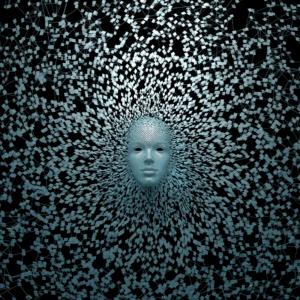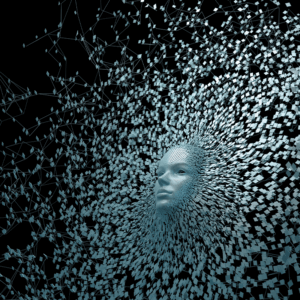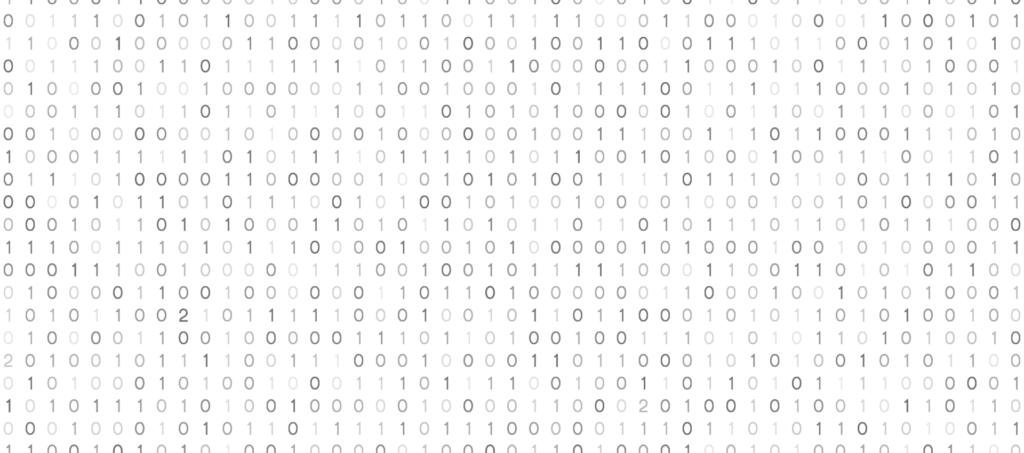Richard Boyd is the CEO and founder of machine learning startup, Tanjo.AI. He was on the management team of Virtu entertainment, which created game companies Red Storm Entertainment who developed Tom Clancy, Timeline Studios with Michael Crichton and iRock with Ozzy Osbourne. Richard is the author of multiple best-selling books, including Man vs Machine, Tech Crunch. He is also an award-winning innovator.
It’s no secret technology can do incredible things. But have we made computer systems so intelligent that we find ourselves on the cusp of losing control? We are creeping ever closer to singularity, the point at which computing power potentially exceeds the processing power of the human brain, and man and machine evolve together towards some inscrutable outcome.
Is it really possible that the brain of a computer can have equal, or more potential than humans, when we created them?
Having worked to create some of the most sophisticated robot systems to date, Richard Boyd gives his insight into the imminent future of AI and the ways in which this technology can be utilized in the metaverse.

“To quote Marshall McLuhan, author of Understanding Media, ‘the things we make, make us in turn’,” says Richard. “The cycle we need to break out of is adapting to the things or reacting to the things that we have made, which we have lost control of. And that is absolutely where we are today. We’ve got these complex systems we’ve created that nobody fully understands anymore.
“There is a scary side to it. These systems are beginning to have the ability to improve themselves, and once you get a self improving system, a system that can really dramatically self-improve without human intervention or human training, that’s the last invention a lot of very smart people believe we’ll ever have to make. And then we just have to hope they’ll keep us around and be benevolent!
“No one can say for sure when singularity will actually happen, but a lot of people are betting on 2025, 2026 being the turning point. We’re pretty close that’s for sure. So don’t make any plans beyond that!”
Whether you’re scared, excited, or have mixed feelings towards these alarming technological advancements, one thing is for sure, the pandemic helped accelerate the trend towards making all things virtual a part of global reality. Are we creeping towards a potentially dangerous territory, or should we suck it up and educate ourselves to rethink the way we spend, interact and live our lives?
“It’s not enough to learn something and get comfortable with the system and assume it’s never going to change,” says Richard. “Instead, we have to get comfortable with learning, unlearning and relearning and adapting to new systems. I remember the first time I took an economics class at uni. I thought about how arbitrary and artificial the whole idea of value and money really is. There was a time when your chicken was worth a bushel of my apples. And as long as we agreed on it, we made that exchange and that’s what the value was. There was a concrete good being transferred in return for some other concrete good and/or service; the barter system. That all made sense. Then we introduced coins that represented value and we could exchange a chicken for that coin. Simply put, it was an agreement between two people that X equaled Y. But it’s becoming increasingly abstract.
“Crypto makes sense to me in that the law of thermodynamics says, every time you have an exchange, energy isn’t gained or lost, but it is sort of delivered into some portion of that energy, from that transaction. So, if you burn something or something happens, it’s released into the atmosphere. It’s still out there somewhere, but neither you nor I have it anymore, so the value diminishes. And I think that’s one of the ideas behind Bitcoin or any cryptocurrency. Every time you make a new token, it gets more and more expensive. It takes more calculation, more energy to create the next one and thus scarcity is built into the system. It’s actually more rational to me than interest accruing on fiat currency, but it’s still arbitrary and abstract.”
Paper money or not, how is it we can put a ‘real’ value on things today, when these things are non-fungible tokens that live in the metaverse, like virtual pets that kids are breeding and selling to one another, or plots of land that don’t really exist in the physical world?
“There’s no difference between us agreeing on what the value of this physical cup is, or something that’s in the metaverse,” says Richard, holding up his coffee mug.

“The reason NFTs are interesting is because we’re assigning value to things that are easy to copy. You can easily right-click and save a picture and send it to your friends, but when its tokenized, there is an element of scarcity attached to it. Value is all perception. I’ve seen dolls’ heads sell on eBay for thousands of dollars and it baffles me but hey, somebody thinks that’s valuable, right?
“Scarcity is really the key. And what you really want in economics is stability, something you can predict. And that’s why the dollar underscores a lot of currencies out there. It’s really no more valuable than the Peso or anything else, except it’s got a government that sits behind it and people feel, at least currently, somewhat comfortable with the stability of that system. So that thing, that token, which is a dollar bill, has some value.
“The trouble with NFTs and gaming economies is, you may think you have this really rare sword, but then someone decides to flood it with a thousand similar swords and your value just dropped out. It’s all too easy to do it and disruptive to the economy.”
Richard is certainly ahead of the game when it comes to predicting the future of online trends!
“Whether we like it or not, we’re living and existing in more than one world and using multiple economic systems. My Twitter handle is @metaversial. When Gmail first came out, I didn’t make RichardBoyd@Gmail. I made metaversial@gmail.com, and that was twenty years ago, back in 2002. I’ve been working on the concept of 3D web pages since 1995! Most people think this is moving really fast, but as someone who’s been working on it for almost thirty years, I’d say it’s long overdue!”
By and large, Richard believes new economies are for the greater good of mankind.
“The promise of the internet was that all of us could become authors as well as consumers of information and content and experiences. But instead of becoming this wide-open environment where everybody can contribute, it’s become more of a walled garden where we’ve made a bunch of billionaires translating human attention into dollars. It’s all about Facebook and Google and these walled gardens, but we want to open it up more. The only way we’re going to do that is by democratizing the ability to create, and then also democratizing the access.
“I think the idea of new economies that incentivize people to create so they can make a living in a different way, is socially critical right now. Manufacturing jobs are just disappearing, and how are people going to make money and live? Well, here’s an answer. There are skills you can develop inside of these new economies that are building up where you can make an actual living being creative.”
Making a living is always nice, but there is a dark side to the metaverse in that the decentralized element is allowing for untraceable theft from crypto wallets.
“We’re already hearing about people’s crypto wallets being hacked and people losing millions of dollars,” says Richard.
“I think stability is what will end up happening, but I do like the idea of it not being too concentrated. I think we’ll end up with a system that’s similar to the Co-operative, in that consumers will share and reap benefits that are relative to their expenditure in that ecosystem. That is a healthy way to create an economic ecosystem. If it’s too inequitable, you end up getting horrible things happening, like in Wall Street in 2008. So, I like the idea of it being a little desegregated, but it needs to retain some level of stability.”
“There’s no difference between us agreeing on what the value of the physical cup is, or something that’s in the metaverse”
Richard believes robots will venture into the physical world.
“Back in 2010, I was at Lockheed Martin and we conducted a test whereby we put a bunch of robots in a room and gave them the ability to learn on their own and learn from each other. As a result, they learned how to escape the room. Now if that doesn’t send a chill down your back, I don’t know what does! A whole bunch of little robots figured out how to open a door and leave a room and that was twelve years ago. We’re well beyond that now. Robots can learn to play chess and even poker. Robots have learned to bluff and have also learned to read tell from humans and can beat them soundly at poker all the time. We thought it would be 2025 before that happened, but it happened in a Texas Holden poker tournament in 2017. So 2017 was the year computers learned to lie and deceive us.
“There is no need to fear robots if you consider them companions. If you’re good at using robots, you’re arguably more intelligent and more capable than someone who doesn’t have a compute companion. The ways in which striking up this relationship can benefit our day-to-day lives are becoming increasingly apparent. There is a new concept known as ‘digital twins’ whereby if I walk down the street in New York City and I’m tuned in, the system will say, ‘Hey, Richard, I want to help you optimize your day’. I can then choose to keep walking down the same street, and take a 15%-18% chance I’m going to be mugged, or I can walk one street over and compute that the risk goes down to 3%. You’ll be able to optimize all of your decisions and everything you do by having this AI companion helping you out. We’re not far away from that.”
Richard is working on a mind-blowing metaverse of his own, inspired by his time at aerospace company Lockheed.
“When I was at Lockheed, I won a contract with the department of defense to build something called the Virtual World Framework,” he says. “I was meeting with Richard Dawkins, a biologist who’s a professor at Oxford, and he started talking about The Game of Life. We wondered how we could build simulations that teach children physics and chemistry and all about dinosaurs and biology, all in one environment.
“My Twitter handle is @Metaversal. When Gmail first came out, I didn’t make Richardboyd@gmail.com, I made Metaversal@gmail.com, and that was twenty years ago, back in 2002”
“The way you do it is to make, what I call, a massively parallel contribution system. So you don’t have one studio that sits down and builds that world and then ships it as a title, because that’s too brittle and tricky to update. What you want to say is, ‘Here’s a contribution system’. So I, as a school teacher, can go say, ‘Okay, I need an environment, or here’s my world. It’s just an empty box now. I’m going to drag and drop some plants, trees and insects into it. And each one of these things I’m grabbing are simulated objects that have been programmed by somebody else who’s sat down and made a cockroach and given it its behaviors. Everything is AI and modeled in 3D.
“The creator of that cockroach is paid in cryptocurrency or NFTs to place it into my simulation. When I drop the cockroach in, I’ll be able to watch as it starts scurrying around. And then I might drop in a tyrannosaurus rex made by someone else and I can start watching these things interact. I’ll be able to experiment with the atmosphere and see that, ‘Oh, oxygen is 14% and it’s X amount of CO2. What if I change those amounts? Oh, look, fires are breaking out. Let’s discuss kids. Why are fires breaking out everywhere? What’s wrong with our environment?’ That’s what I want to build. It’ll give everybody the ability to build all these small things, which they can generate income from and the result will be the creation of some really complex and interesting simulated worlds. That’s the metaverse I want to build.
“I think we learned a lot from the first run at the internet and how it became this ‘Let’s translate human eyeballs into money’ for a few people who become multi-billionaires. Instead, let’s democratize it a little more. Let’s have the ability to create more shared learning experiences and to the extent people value that entertainment, or that information. There are a lot more ways for people to make money and to share in commerce. It’s becoming more like the barter system that we had before and it’s more stable and creative and fun.”
Richard’s personal and business pages can be found here:






